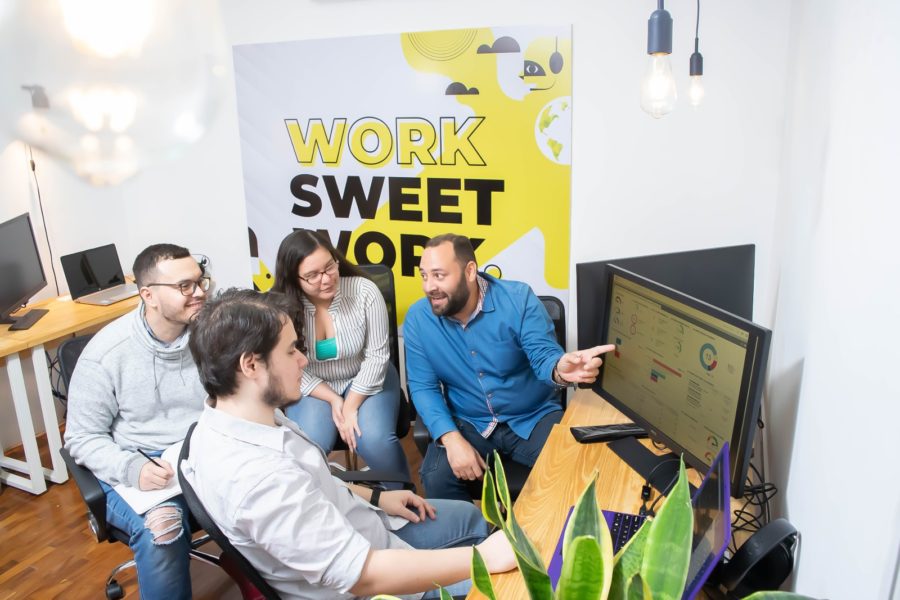When doing about anything, no matter how skilled we are, there’s always room for improvement. And we can’t deny the fact that there is also the possibility that we mess up. Let’s be real, it is only human to make mistakes and no one is exempt from it. Meaning that not all the comments we are going to receive regarding our performances are praises or congratulations.
Being told we did something wrong is not something we love to hear. But it is an inevitable part of life, and more so, an unavoidable part of work. And how can we learn to absorb the lessons within this likely unpleasant to hear but constructive feedback? Like most things in life, it is a process that requires effort, and for some of us, it requires unlearning our old ways too.
Receiving tough feedback is nothing new, we have done it for years. There is where the trick lies… Sit back for a second and try to remember how did you handle these situations as a kid? then as a teenager, and how do you tend to do it now in your adult life?
Be aware

Identifying our behavioral patterns is the first step toward changing them. After knowing what we do, we can start analyzing it to try and find what is not serving us from it. A good way to start is looking at past experiences with a detective type of lens. Try to see it from the outside. What happened? How did you feel? What did you do? What crossed your mind? Those are very helpful questions when it comes to sorting out our ways.
Once we know what we normally do, feel or think; we are a step closer to improvement. Do you feel threatened? Or offended? Or do you feel ashamed? What is your default thought? Do you flee the scene without saying a word, or do you justify your actions till the end? And more importantly, how does that work for you?
Avoid automatic responses
It might not be a piece of cake, but makes all the difference in the world. After realizing what tends to happen inside our minds and bodies we can have a say in how we manage the situation. If we find that our predetermined reaction is to feel endangered and activate the fight or flight response by shutting down and leaving the scene. Now we can slow down a little and regulate our bodies so our minds can follow, therefore giving ourselves the chance to act differently.
Handling tough feedback can come down to stopping ourselves in our tracks and directly avoiding our automatic responses. Some of us can get intrusive thoughts that are mere cognitive distortions as Aaron Beck described them in his cognitive-behavioral therapy. This not only makes it hard to receive the feedback but also makes it unnecessarily difficult to find the lesson to apply. An example of this can be the black or white type of thinking, in which one can think “If this project doesn’t go perfectly, I’d be a total failure”, another common one is an overgeneralization, imagine your supervisor gives you a piece of advice so you can improve and your train of thought goes “Great, I screwed up like always” in thinking processes like that, there’s no room for learning, and any tough feedback will feel like a personal failure that demotivates you. So yes, by being aware, you can stop your horses if they are not serving you any good.
Look for alternative ways
Once we have the ball in our court, we can look at it from many different perspectives. Those thoughts can be treated differently and based on the facts. For example, “If this project doesn’t go perfectly, I’d be a total failure” this thought can be reframed in many ways, like “If this doesn’t go perfectly, I might be disappointed, but I would have learned a lot from it and gained experience”. Because yes, we need to acknowledge that we like things to go our way, let’s not pretend that we love to make mistakes, but we mostly need to be resilient and learn from them.
If you tend to fly, why don’t you try staying? Listen actively, ask questions. Improvement starts with disposition. Showing interest in our development is a part of the growth that lets the others know that you want to be challenged, you want to be better. Try new ways, different ways, until you find better ways that work for you.

Keep a growth mindset
Don’t take it personally, remember that we are much more than our performances. A mistake is something we do, not something we are, and that should be the premise when receiving feedback.
Keeping in mind that every experience is a learning experience, taking risks and accepting challenges must be one of the most nurturing things we can do for ourselves. Staying in tune with our abilities and competing with ourselves to be better every day will help us thrive. So don’t stay into a fixed mindset and shift to a growth one. If you do so, there’d be no tough feedback you couldn’t handle.
Learning to handle feedback is humbling sometimes. It sits us in front of our weak points. And though it is uncomfortable, is always for the better if we look closely for the lesson to learn. We all want to improve at every chance we can in our craft, so why don’t you try to listen carefully to that tough feedback?






